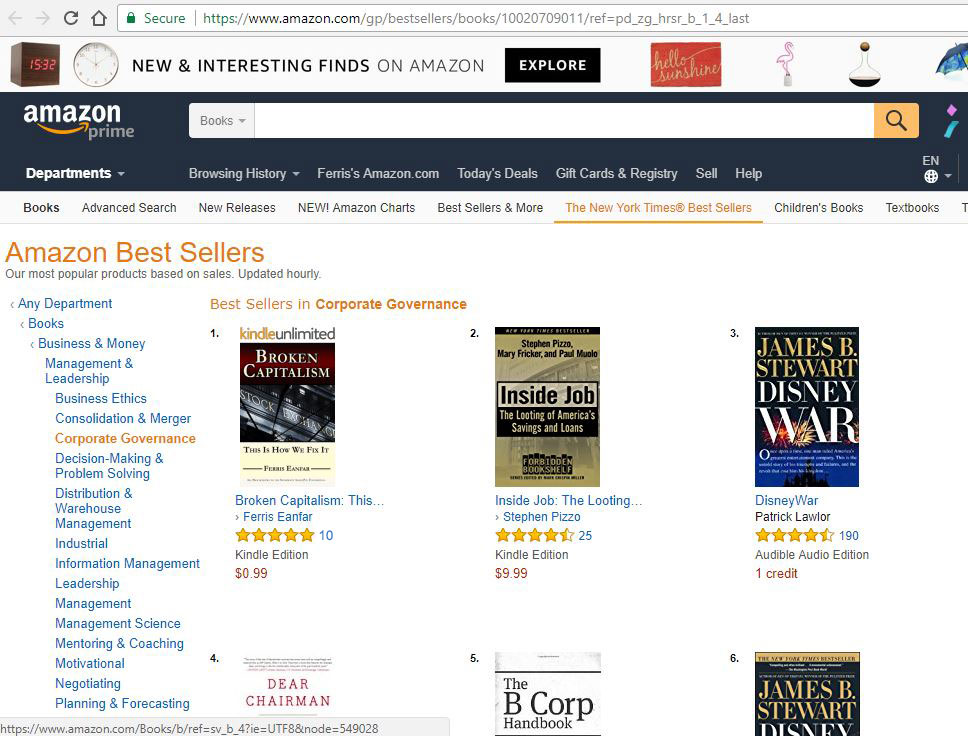
There are two female profiles below. Which do you prefer?
Montse:
- an emotionally stable, mentally and physically strong, creative, feminine, sensitive woman;
- reads/listens to books on psychology and philosophy and takes her personal development seriously;
- never complains, even when she is in physical pain;
- never lashes out with unsubstantiated emotional acusations;
- listens carefully during conversations and doesn’t interrupt you;
- takes time to research objective information before important conversations and decisions;
- avoids emotional arguments by basing her concerns and opinions on verifiable facts and science;
- instinctively knows when to be sexy or nuturing based on the situation;
- has a full-time job because she doesn’t want to be 100% dependent on any man;
- cooks world-class gourmet dinners for you every night after her 10-hour workdays;
- never talks about herself or how great or smart she is;
- takes responsibility for the consequences of her own choices and actions;
or …
“Princess”:

- a woman who literally calls herself a “princess”;
- is always projecting “I’m the boss” energy, but is never able to work in any company because “reasons”;
- frequently says “I don’t have anything to prove to anybody!”;
- has severe emotional break-downs every time you try to help her understand why she is homeless and single;
- is very creative and talented in certain areas, but never focuses on anything long enough to be financially stable;
- constantly takes your words out of context and acuses you of “pushing me down!”;
- frequently assumes men are attacking or disrespecting her because they are “intimidated by strong women”;
- frequently complains about her past and present problems;
- uses emotional manipulation to extract money and concessions from friends and business partners;
- never reads/listens to books that might help her understand why she has problems in her life;
- expects a “real man” to pay for everything and take care of her, while simultaneously expecting everybody to perceive her as a strong, independent and liberated woman;
- frequently says “I am very smart and I can do anything I put my mind to! So don’t tell me that I should focus on my strengths!” then demands that everybody adapt and accommodate her weaknesses and help her with basic tasks;
Who are These Women?
Montse

Montse is my girlfriend that I’ve dated for nearly two years (as of Dec. 1, 2024). The montage includes some of my favorite pictures of her because they reveal her strong spirit, creative talents, fun and sexy personality, among other admirable qualities. (Yes, her body is all natural.) She is also very smart. I’m an engineer and pretty good with numbers, but she memorizes numbers and facts much faster than me. She loves to study and learn new things. She made those costumes in the montage from scratch for her office party, which earned 1st place in a costume competition. She also created intricate makeup designs for many other people. I enjoy seeing her learn and use her creative talents.
Montse doesn’t take shit from anybody. People are often intimidated by her because she usually has a serious expression on her face, she manages her office with a no-nonsense attitude, she speaks with precision and confidence, and everybody sees from her artwork and design work that she is very talented. But she treats me with deep love, tenderness, respect and appreciation every day, which I deeply appreciate and reciprocate. We laugh and joke every day. We have literally never had an argument in nearly two years of dating because we both understand the importance of using objective facts, research and data in important conversations and decisions. Each day together feels like a refuge from the storms of life compared to our previous relationships with other people.
Princess

Princess’ profile is based on my experiences with several women that I’ve dated and/or known for many years. The picture is AI-generated. I think most people have met a Princess at some point in their lives. Of course, every Princess has certain unique qualities, but they generally share the same fundamental characteristics that I’ve summarized in the Princess profile above. And to be clear, the Princess profile above applies to many men, too, but my experience with princesses has been with women; so that’s what I’m focusing on in this article.
What Causes Depression?
Princess recently said I cause her depression for reasons I’ll summarize below. But I have thought about this question many times in my life, both for personal and professional reasons. I often fight against depression as I’m writing my books and articles because many of the socioeconomic and geopolitical topics I’ve studied and written about are certainly depressing. I viscerally hate seeing other humans suffer, being exploited by giant cannibalistic corporations and politicians, among other scourges of our world today.
I also grew up in a violent, abusive and financially unstable family environment in one of the poorest neighborhoods in the United States. That experience exposed me to many forms of sadness, suffering and depression as a child. Thus, depression has been a familiar companion throughout my entire life. I understand and feel it at the deepest levels of my existence. And these life experiences have given me empathy for others who suffer from depression.
However, depression is not something that happens to us; it’s an emotional response to how we choose to perceive our world. This can be hard for some people to accept. So a few examples might help to illustrate this point.
Depression Caused by Loss & Tragedy. Sometimes depression is a healthy response to human loss and tragedy. For example, when we lose someone we love or we witness a murder or genocide, depression is a natural and healthy human response. This kind of depression and the empathy it often inspires from other humans is an evolutionary instinct that usually inspires the tribe to rally together, help each other, and protect the tribe from further harm.
Depression Caused by Chemical Imbalance. Sometimes the human brain doesn’t function optimally due to chemical imbalances. This can occur for several reasons, e.g.: brain damage from an accident; hormonal imbalances caused by pregnancy; structural brain and hormonal changes caused by long-term drug use; among others. These chemical imbalances often alter a human’s perception of reality, which prevents them from accurately perceiving objective facts and events.
Depression Caused by Perceptual Conflict with Objective Reality. Sometimes the brain doesn’t function optimally due to bad mental habits, low-quality education, a lack of emotional self-control, which often results in a lack of self-discipline. This constellation of interconnected factors causes the human brain to rely on emotions instead of verifiable, objective facts to develop its perception of reality. This retards the person’s personal development, which prevents them from achieving important personal and professional goals, financial stability, and relationship stability.
Those last two causes of depression are obviously unhealthy, but they don’t merely cause depression; they are also the fundamental causes of many other cognitive and psychological maladies, including paranoia, insecurity, projection, emotional instability, ego-centrism, narcisism, frequent feelings of being under attack, among many others. These feelings and unsubstantiated perceptions often cause people to excessively personalize every event and action by others.
Then excessive personalization inevitably leads to conflict in their relationships because they perceive everything that happens to them as an intentional attack against them. This creates a vicious cycle as the consequences of conflict and broken relationships accumulate throughout their lives. Then they misinterpret those consequences as evidence of the bad intentions and actions of others. Sadly, they never fully grasp the fundamental cause of their conflicts, problems and depression.
Why is Continuous Self-Improvement so Important?
The answer to this question might seem obvious, but I still see otherwise intelligent people neglecting this essential aspect of their lives. They seem to believe that their brains are perfect from birth and they don’t need to do anything to improve the way their brains work.
For example, “Princess” is intelligent and talented in several ways, but for years she has always said, “I’m too busy to read and study personal development materials. After my life is stable, maybe I’ll do it more.” Then her life continues to be unstable and full of suffering and sadness. As each year passes, she continues complaining and blaming everybody but herself for her problems and suffering.
People like Princess misunderstand the cause-and-effect relationship between personal development and success in their personal and professional lives. They don’t grasp the basic reality that continuous personal development and self-improvement are not luxuries that we can ignore until after we are successful in life. To the contrary, they are essential pre-requisites for strong, healthy, stable, successful lives and relationships. Why? Because there is no mechanism to prevent the human brain’s natural tendency toward egocentrism, self-indulgence, self-pity, self-sabotage, self-inflicted wounds, and all the interconnected maladies above without continuous personal development and self-improvement.
More technically, those cognitive maladies prevent the human brain from developing a reliable and accurate model of how human nature and the broader universe work. They prevent the human brain from accurately recognizing cause-and-effect connections between our choices and actions and the events, relationships and environmental conditions of our existence. Then this prevents the human mind from consciously connecting the dots between the consequences of the person’s own choices and their life problems, which prevents them from understanding the fundamental cause of their problems and suffering. Then they spend a lifetime fighting against all their perceived enemies, abusers, attackers, spouses, romantic partners, business partners, etc. that they think are intentionally trying to insult them, attack them and block them from the success and happiness they think they deserve.
For all those reasons, it’s essential to make time (not excuses) for continuous personal development; make time to actively listen to objective feedback from other educated and thoughtful people that we respect in our lives, especially when we are dealing with significant problems and decisions; then based on those conversations with others, make time for continuous improvement in our areas of weakness. This process includes actively developing our minds and wiring our brains with high-quality education in the form of high-quality books and articles in the cognitive sciences and various forms of philosophy.
Do You Have Anything to Prove?
“I don’t have anything to prove to you!” is something Princess frequently says whenever anybody in a business context expects a minimum level of clearly defined performance from her. But since she refuses to be held accountable to any kind of performance metrics, she can never work in any kind of structured business environment. She will only work according to her own self-defined performance metrics. Then she expects everybody around her to adapt to her unique weaknesses and help her with basic tasks. From a professional perspective, this is why she has never been able to keep a stable job and why she is suffering financially today.
More fundamentally, Princess does not understand that everybody must prove their value in every relationship. In personal relationships, we must prove our value in the form of positive emotional experiences. In professional environments, we must prove our value in terms of how much income we help a company generate and/or how much money we help a company save. Yet, Princess believes she is so special that she can do whatever she wants and any business partner or company should be happy with her. This is an example of how perceptions that conflict with the objective real world lead to conflicts in personal and professional relationships.
How to Deal with a Princess in Your Life
Princess recently accused me of causing her depression. The reasons for this are essentially already summarized above. But in this particular case, we were interacting in a business context. I’m a portfolio manager, technical trader and the developer of a commodities trading platform. So I have an endless amount of coding and technical work every day, which requires a lot of focus and concentration. If I can’t focus and concentrate, we would lose a lot of money.
Princess was upset today because I said she needed to stay focused on some important tasks and not be distracted by shiny AI gimmicks promoted to her by other companies. This was after I already told her several times that AI is not the solution to everything, among other technical points. Every time I’m forced to spend a lot of time vetting another AI gimmick and explain to her why it’s irrelevant or doesn’t actually do what she thinks, it’s another distraction that wastes more time and money.
In response, she accused me of disrespecting her and that I have no right to point out her bad habit of being distracted by shiny new things that are irrelevant to what we are already building and managing for clients. She often says I’m “pushing her down” whenever I say it’s important to focus on her strengths, objective facts and data, using our time and resources efficiently, and effective execution in a business context. This then causes her to feel insecurity, leading to severe emotional break-downs and “depression”, in her words.
She said various other things, which I will omit to protect her identity, but the bottom line is that she believes she can do anything and everything and nobody can tell her to improve in any way without her feeling like she is being insulted and attacked. Then she flips everything around and says I don’t listen to her suggestions, and thus I’m closed-minded; even though I’ve already taken a significant amount of time to explain exactly why AI-based solutions will not work from numerous technical and business perspectives. Then this becomes an endless round-robin of time-wasting circular arguments, which is extremely irritating. This is just one of dozens of similar exasperating experiences with Princess.
For all those reasons, it’s usually wise to distance yourself from people like Princess because they usually never truly learn and accept the principles I’ve summarized in this article. Life is very short; and trying to fix other people’s problems almost never works because the solution to any human’s existential problems must come from fundamental changes in their own mental habits and corresponding life choices.
However, sometimes the Princess in your life is a family member or somebody that has a special place in your heart. In those cases, it’s difficult or impossible to cut them out of your life completely. If you’ve decided to not cut the Princess out of your life, then I recommend the following two classic books:
Psycho-Cybernetics (Amazon)
The Courage to Be Disliked: How to Free Yourself, Change Your Life, and Achieve Real Happiness (Amazon)
Those two books alone will positively change any human’s life, avoid years of painful mistakes and broken relationships, and save USD thousands in psychological therapy bills. But the books work only under the following conditions:
- Princess’ cognitive problems are not caused by physical brain damage or congenital brain malfunction.
- Princess reads/listens with an open mind and an authentic desire to understand what is fundamentally causing the problems and suffering in their life.
- Princess is sincerely willing to confront all of their conscious and unconscious biases and assumptions about their lives and relationships.
- Princess truly wants to identify and change their counterproductive mental habits and choices.
- Princess diligently takes notes and thinks deeply about each major principle in each chapter.
- Princess diligently applies their notes, new insights and new mental habits to their daily life.
- Princess diligently practices the new mental habits and actions every day by applying them to all their important conversations and decision-making processes until the new habits become permanent unconscious habits.
Given that many humans are lazy and unwilling to change their mental habits, the probability that the Princess in your life will actually follow those important steps is low. But it’s not 0%. So it might still be worth the effort.
In my own life, the peace and happiness that I have today is a direct consequence of finding a woman who takes her personal development seriously, takes responsibility for her own choices and actions, and doesn’t blame anybody else for her problems, among Montse’s other admirable qualities. Thus, whenever you are faced with a choice between a princess or an emotionally stable woman who takes responsibility for her own choices and actions, now you know which option to choose.
If you have a “Princess” (or a male “Prince”) in your life, it might be useful to share this article with them. But if you feel they are not yet ready to confront these issues directly, maybe you can use this article as a reference point while you navigate those difficult conversations with them. Either way, I hope the experiences and insights I’ve shared here add some meaningful value to your life.
About Ferris Eanfar
Ferris Eanfar has over 20 years of experience in technical, financial, media, and government intelligence environments. He has written dozens of articles and several books in the fields of Economics, Crypto-Economics, and International Political Economy, including Broken Capitalism: This Is How We Fix It and GINI: Capitalism, Cryptocurrencies & the Battle for Human Rights and the Global Governance Scorecard. Ferris is a cofounder of the Gini Foundation, which builds unique cryptocurrency systems to protect human rights, among other benefits; and the CEO of the AngelPay Foundation, a nonprofit financial services company with a mission to “return wealth and power to the creators of value.” To learn more about Ferris, please visit the About Ferris page.Visit Ferris on:

 Gini Website Coming Soon. We (
Gini Website Coming Soon. We (
